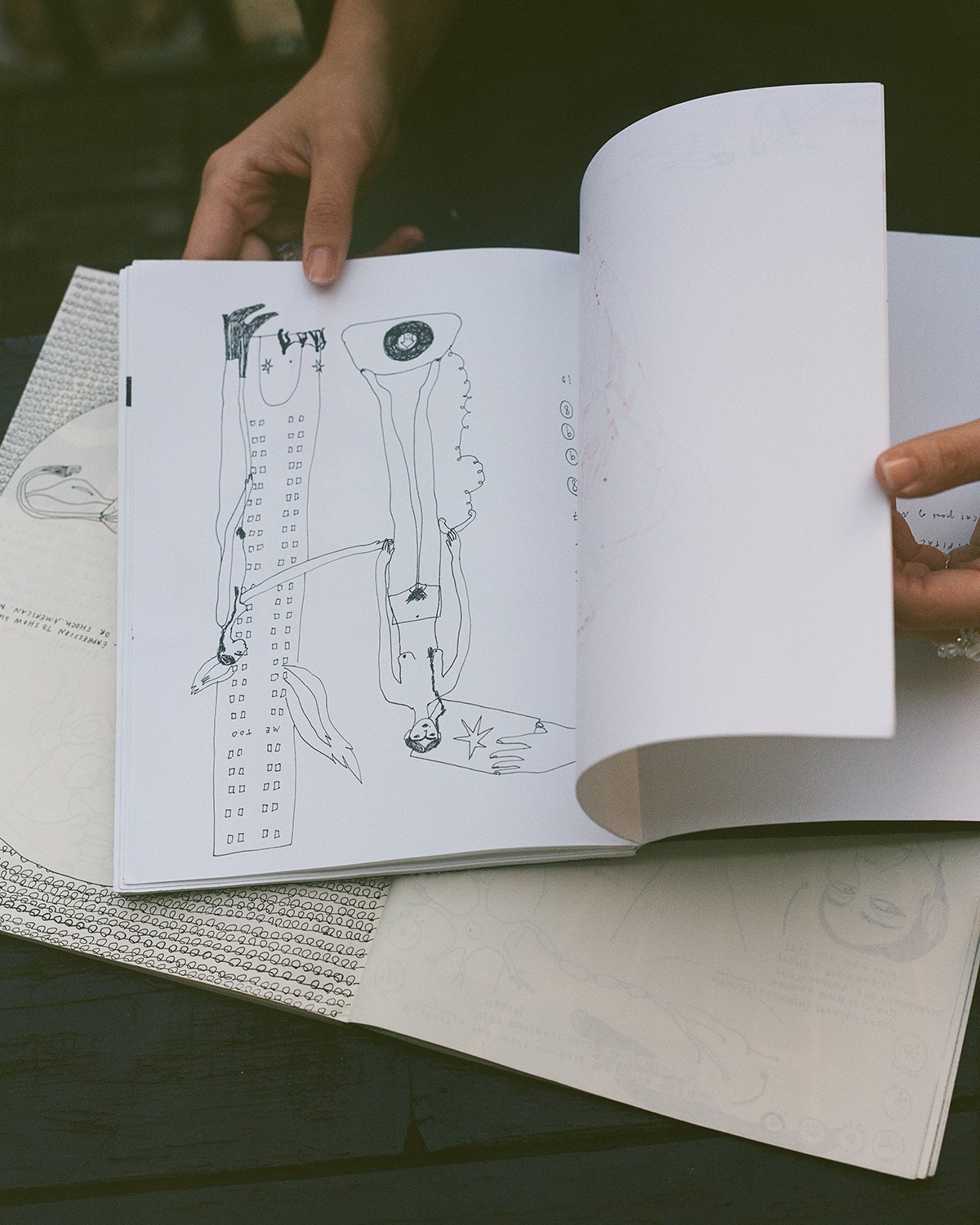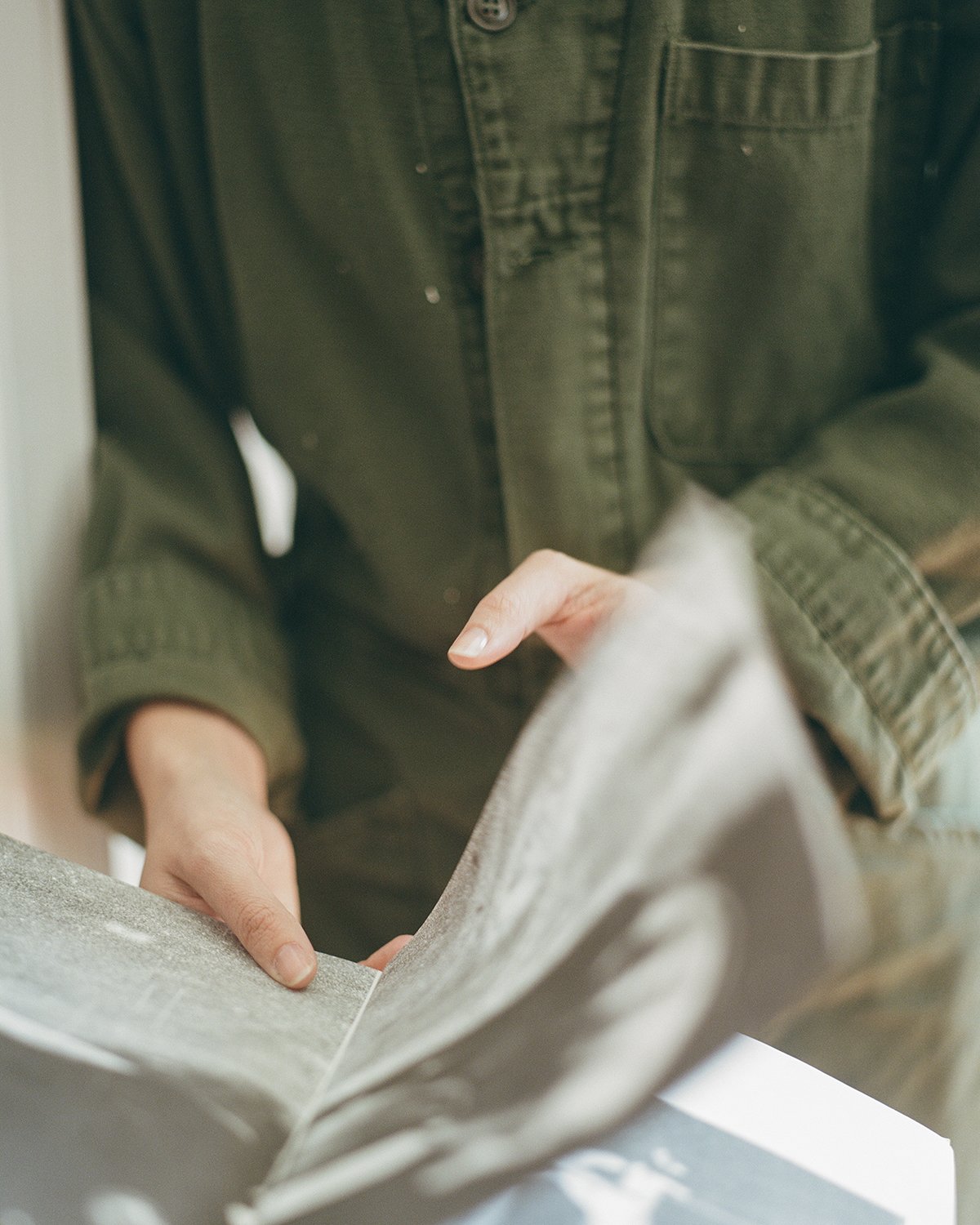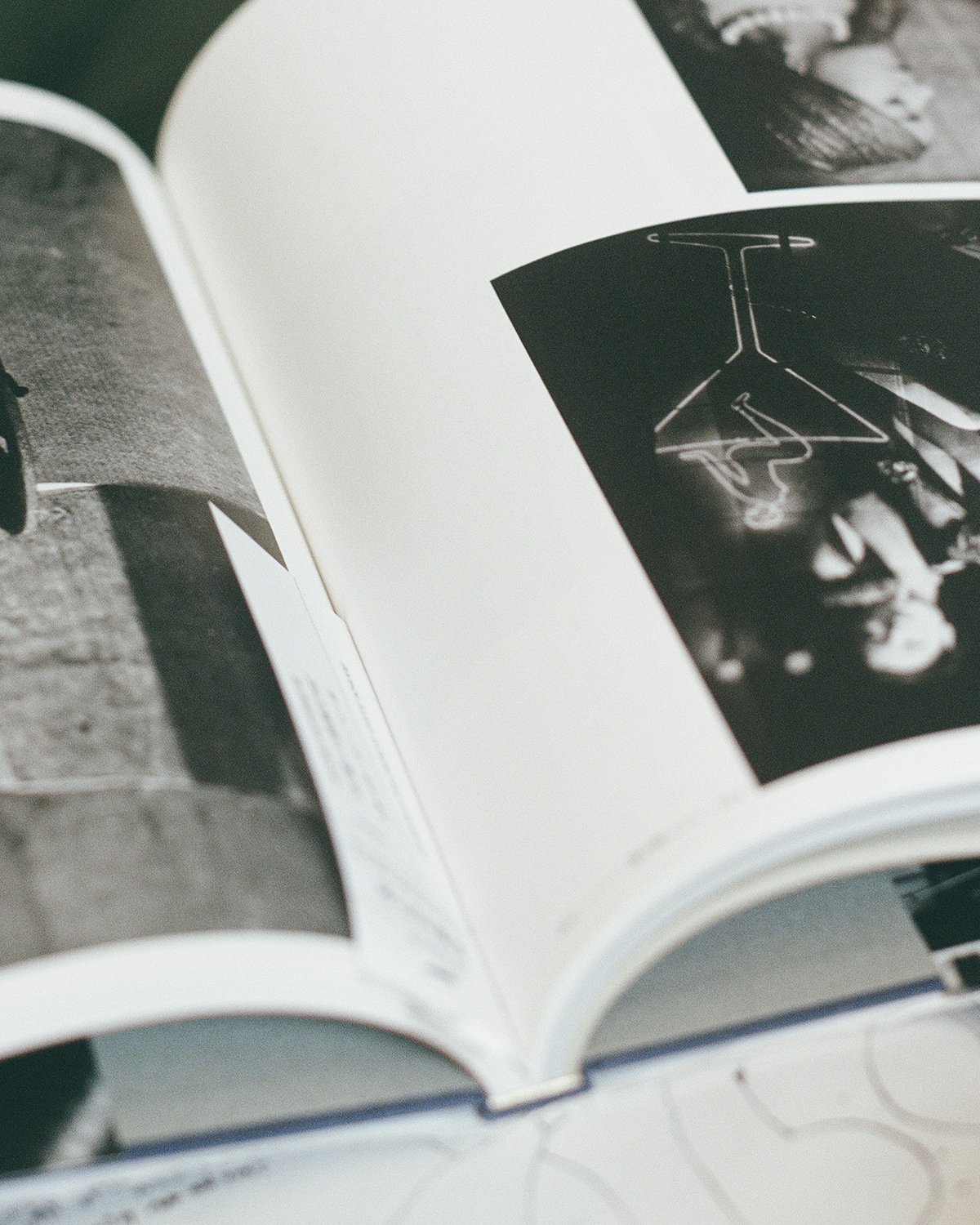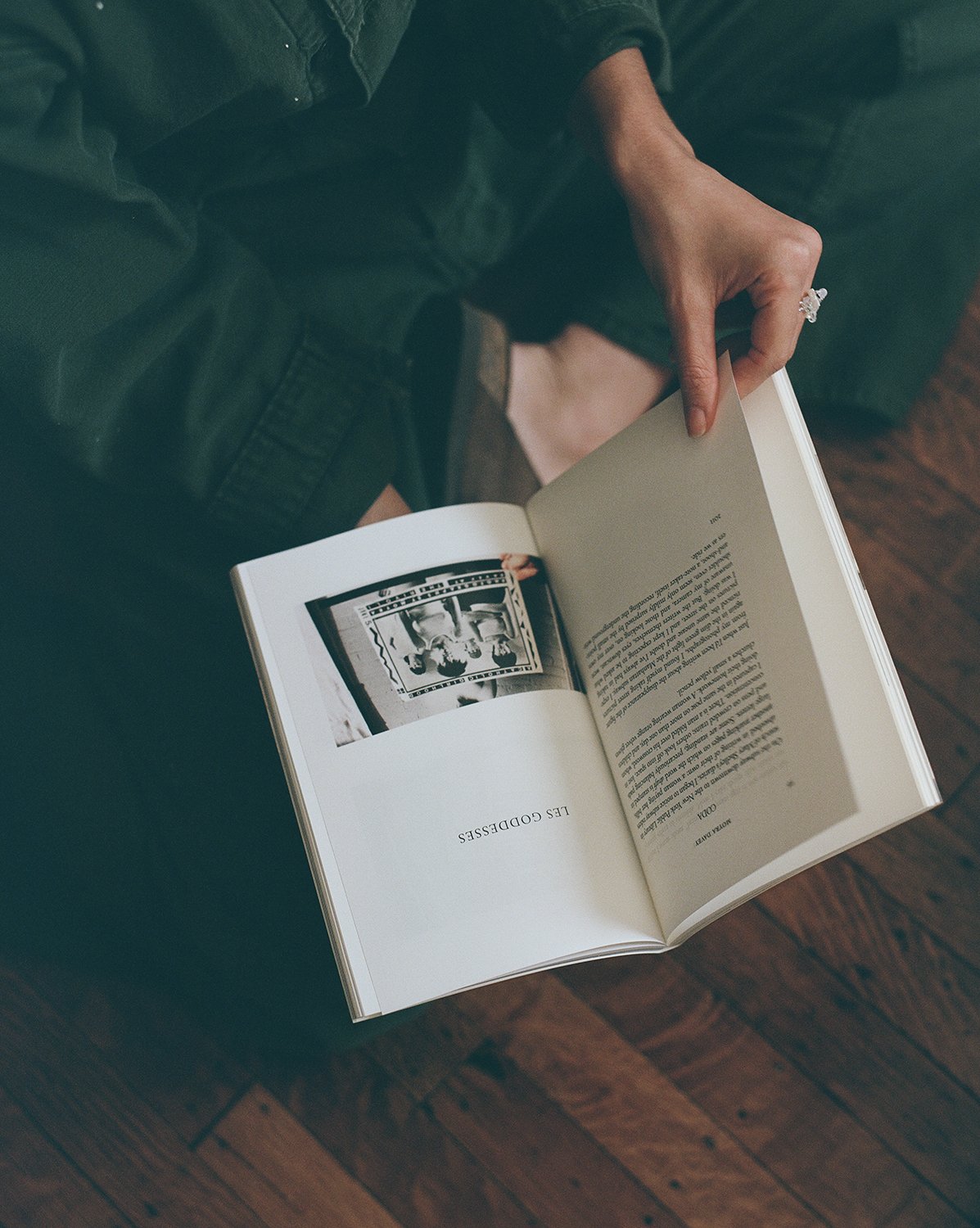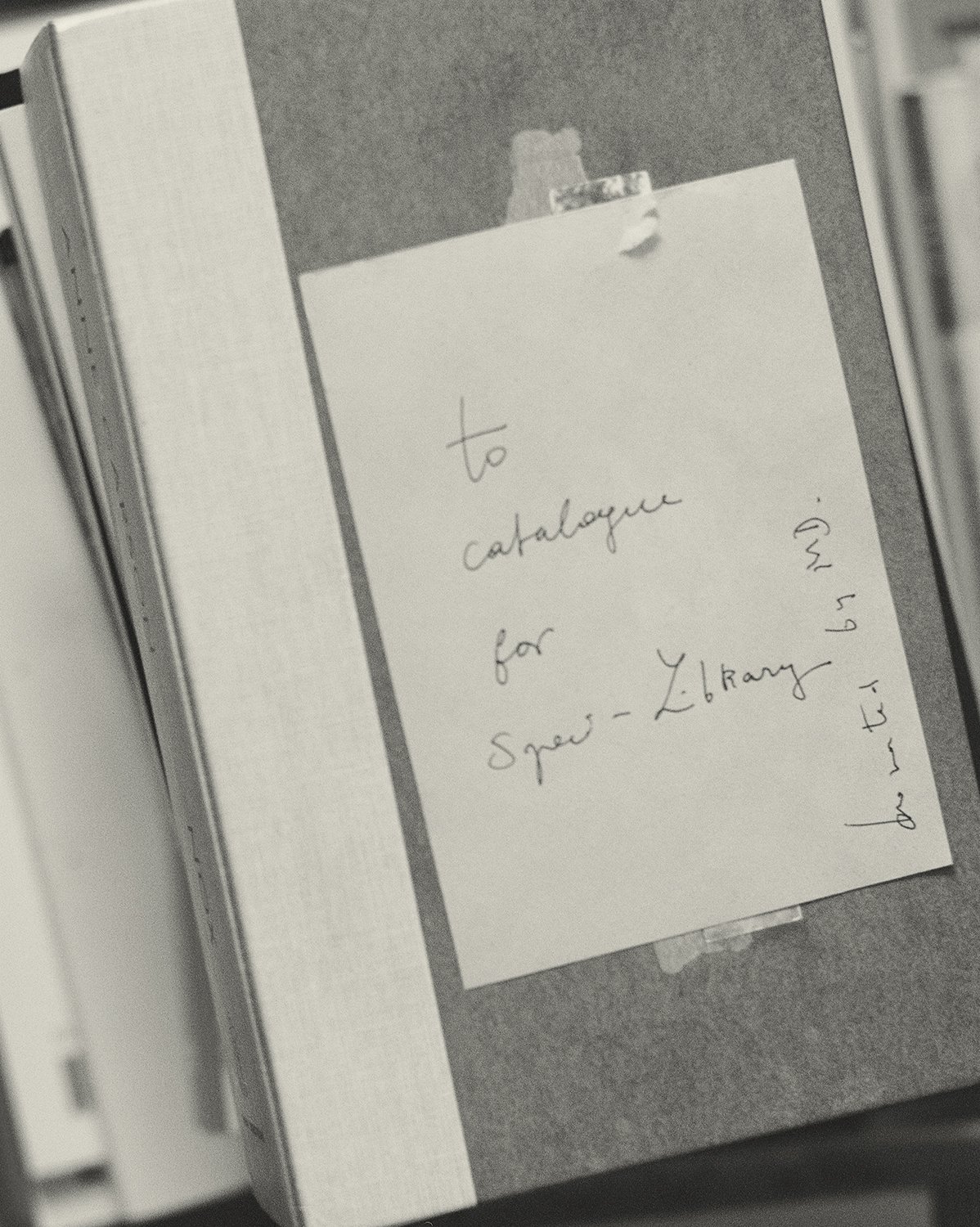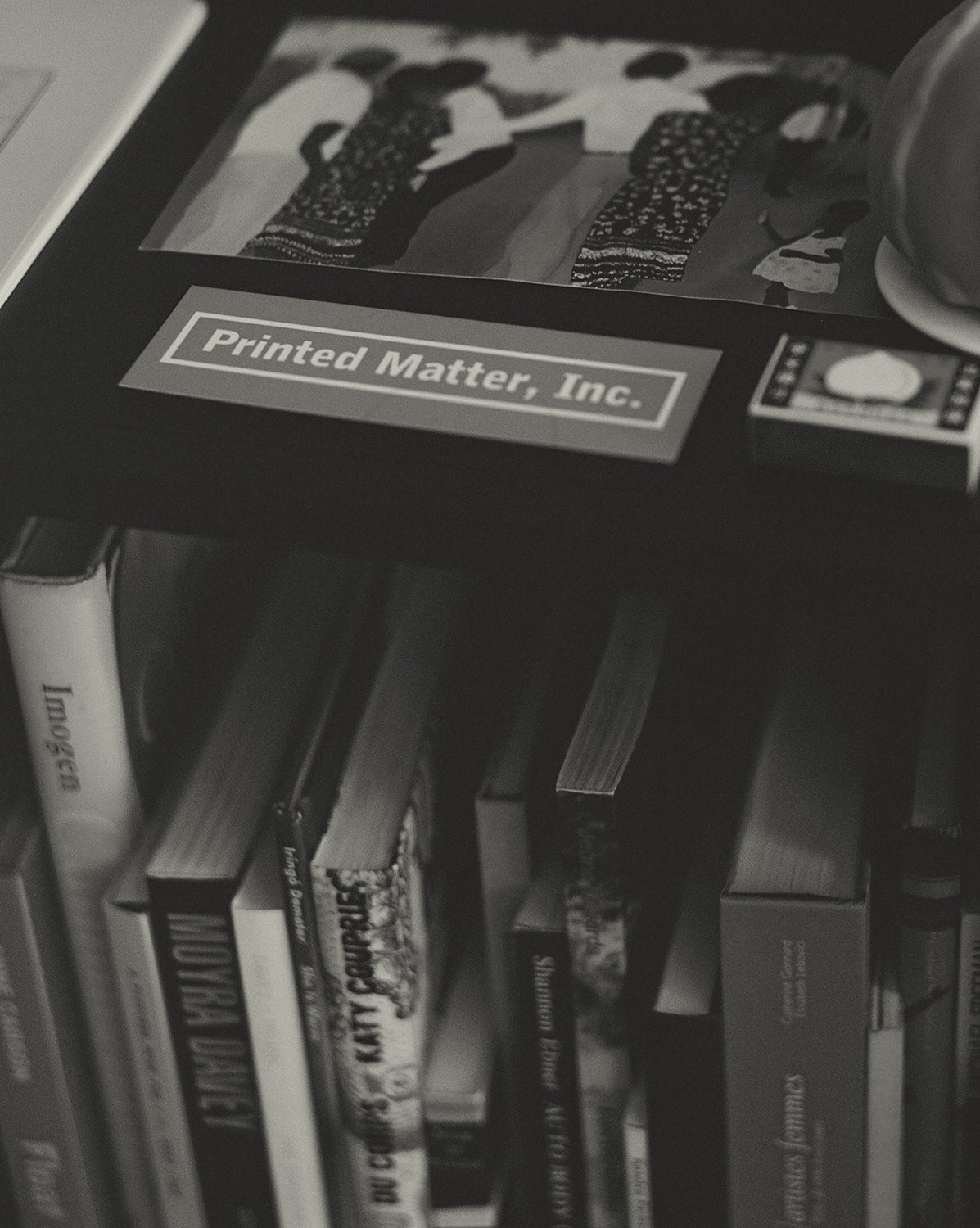Philo Cohen
Interview by Jennie Edgar
Photo by Dimanche Creative
March 1st, 2022
Always keep a notebook and surround yourself with mentors
The writer, artist, and Speciwomen founder spoke to us about inner worlds, artistic stimulation, and her obsession for feminist science fiction.
“There is no past present or future. Using tenses to divide time is like making chalks marks on water. I do not know if my experience at Cliffhaven happened years ago, are happening now, or lie in wait for me in what is called the future.”
Faces in the Water by Janet Frame
Tell us about yourself. What does your creative practice look like?
My name is Philo, and I’m a French artist, editor, translator, and curator living in Brooklyn. I run Speciwomen, an independent press and online archive of interviews aiming to shift representation in the arts.
I live in New York. It’s all about hustle. It has been very hard for me to find time to practice. I go to galleries for work, museums on the weekend, and I try to slow down in the evenings. I would like to make more time in the morning to read, but I’ve been needing sleep too much. Reading really fuels my creativity. If I can get a few hours a week in the studio on a Sunday, or a weeknight, I am happy.
I know there will be times in my life where I will have more of a creative ritual. Right now, it’s just about staying afloat. I used to work in restaurants when I was in college and had a lot more time for my own creative work, because I only worked nights. This is my first year fully supporting myself and my practice from working in the arts. It’s full-time, it’s consuming, but I am glad I’m able to do what I love.
What was the first book you remember falling in love with?
Since I was small, I have always looked for intense multimedia stimulation. My first picture books were the books of Claude Ponti, a French illustrator who created worlds beyond the real, of animals, natural creatures, and faraway lands. I found them comforting.
As an artist today, I draw from my inner world and the surreal. There are worlds inside me that have sprouted from the outside world, yet only exist because of speculation, or imagination. That is what I’ve always enjoyed the most in literature. Being able to escape the rational, to go on a journey somewhere I’ve never been, with someone I’ve never seen.
I swore to myself when beginning this interview that I would only quote books by women to honor my press Speciwomen, which aims to shift representation for womxn in the arts and literary worlds. But here I am! With Claude Ponti! I couldn’t not cite him.
I guess for any man writer I’ll quote, I’ll give a woman as well. Dorothy P. Lathrop’s drawings fascinated me as a kid—and scared me a bit.
Later, the first book I read when I moved to the States at sixteen was Mary Shelley’s Frankenstein. I was thrown into British Literature while only able to speak two or three words of English. I would watch the teacher’s mouth move without understanding a word of it. I had Frankenstein in both French and English, and I grappled with Shelley’s words across languages. Frankenstein and Helen Keller’s memoirs were the most transformative books for me as a young adult.
What cultural influences have stayed with you since childhood?
My parents are both filmmakers. We always had other artists and friends over. Writers, musicians, scenographers, actors, filmmakers, dancers, painters. I was one of the eldest kids of my parents’ friends, so I liked to hang out with the adults. While striving to assimilate, I picked up their manners, became obsessed with the artists they discussed, drew with them, and chatted with them about everything and nothing.
My mum made sure my brother and I had notebooks when we went to people’s houses, to occupy ourselves and not bother the adults too much. My brother and I have very affirmative, creative minds today thanks to those notebooks. We used to have a game called Atlas Dessin, in which we would draw a picture of words we would tell each other, but without showing each other where we put the elements on the page. Sometimes I would have drawn a tiny sun when his was gigantic.
I feel very privileged to have grown up surrounded by so much artistic stimulation. My mum took me to the theater and to see dance performances. My dad showed us weekly movies, and made us keep a notebook for those as well! We went to museums with our notebooks. We played music. This creative upbringing was very multifaceted, strict but also a gift of life. It is the base of everything I am today. I am still very close to my parents. They have become friends of mine. Every day, I am grateful for this connection and what has come from it.
What books have been especially meaningful to you?
Reading is like the hybrid mirror of self, and the time it is in. Self in time. Jumping back to what I was saying earlier, about escaping in books: I have been seeking that throughout my life.
I was sixteen when we moved to New York City, a time of complete reckoning with identity. Moving to a different city, without speaking the language, pushed me to immediately want to assimilate. I would become the characters in the American films I would see, the characters in the American books I would read. But I also found myself unapologetically moved by European literature. I read a lot of Eastern European writers in my first year of college. It was the first year I was able to read as well in English as in French. There were a few writer’s voices that, up to this day, I have never felt more seen by. They freed my insecurities, moved me beyond fear.
Today, I go back to Eva Hesse’s Diaries a lot. Especially since the pandemic. At the dawn of COVID-19 in New York, I was reading a lot of factual readings for school—philosophy, critical theory, mostly prose. I was the research assistant for a nonfiction writer and was constantly hanging onto the real. Hannah Arendt, Aruna d’Souza, Judith Butler, Angela Davis. I was obsessed with people’s memoirs and journals. Jonas Mekas, Franz Kafka, Anaïs Nin. I needed to know how people lived through time, what they made of it. I wanted to be guided, in the realest way possible.
And then, I discovered science fiction. People laugh when I tell this story because I know many devour sci-fi as kids. I think I have just always been too much of a control freak, and fantasy was my brother’s realm of thought. So, I never explored it.
In the middle of the pandemic, I bought Octavia Butler’s series Lilith’s Brood at my local bookstore after hearing Toyin Ojih Odutola reference it on a podcast. I was deeply depressed in the summer of 2021—I had graduated from school a year before, recently received my American citizenship, and was disgusted and hopeless. Nothing felt good anymore, really. I was numb to it all. I had always had dramatic moments of melancholia, but never something so profound. I was twenty-two, and had no idea how I would even make it to thirty! So, I opened Octavia Butler’s first book from her saga (originally called Xenogenesis), and started reading, reading, reading, reading. Did not put it down.
This was the beginning of an obsession for feminist sci-fi. I watched Japanese anime and sought surreal writing and science-fiction in the books I was collecting. Toshio Saeki, Ursula K. Le Guin, Kathy Acker, Clarice Lispector, Carmen Maria Machado, Paul B. Preciado. Sci-fi transcended time, period, and place. It inspired me, and I was able to make work again. And it was freeing to not talk about the unbearable present, or the traumatizing past, or the daunting future. It was just beyond.
What else have you been enamored by?
I go through phases. Right now, I am very immersed in the photography book world. Once a week, I work at Dashwood Books, a photography bookstore in Lower Manhattan, and I’ve surrounded myself with mentors: all-around photographers, writers, and filmmakers who treat the relationship between image and text as one of the magical sources of stimulation.
I couldn’t just read, or just look at art, or just watch movies. They all feed off each other for me. I love going to the Lincoln Center theaters, and to Anthology Film Archives. I like the multi-arts center Brooklyn Academy of Music, too. In Paris, I am always struck by how many bookshops there are, and I miss that in New York, the casual presence of books. Dave from Better Read than Dead and sidewalk bookseller Jen Fischer have some of the best books in all of New York City! It is the closest to browsing titles you can get.
I like casual when it comes to books. I hate a bling-bling bookshop. I am selling books through Speciwomen, and on my stoop in Brooklyn. Right now, I am obsessed with that most of all. It’s been a fun new venture.
What are you working on now?
I am just starting production for the fourth volume of Speciwomen. It will be a catalogue of the exhibition I belong to this, curated by my friend and mentor Justine Kurland at Huxley-Parlour Gallery in London last fall. It is comprised of seventeen phenomenal image-based artists who will be in conversation with one another. I am looking forward to it. Hopefully, it will come out in the fall.
“There are worlds inside me that have sprouted from the outside world, yet only exist because of speculation, or imagination. That is what I’ve always enjoyed the most in literature ”
What books have been important to your creative becoming?
Writing by Marguerite Duras, my mother gifted it to me when I left for college. It is a window into the complexities of writing and solitude, the relationship between the two, and the stigma that surround isolation for women. It is a deep and dark book, but also a beautiful homage to vulnerability in writing.
The Vertical Interrogation of Strangers by Bhanu Kapil because Kapil’s form was extremely formative for me as a young writer. My friend and mentor, and professor at the time, Kate Zambreno introduced me to Bhanu’s writing. Vertical Interrogation came to me in a moment where I was needing clarity on the dynamics of transnationality, struggling with the notion of home, of belonging. Kapil loosely interviews people (women?) on their relationship to home, to their body, to their mother. It is all threaded together through unique prose, almost a collage of experiences in the book. It is a bible for transnational identity, and a poem on living in the bardo of home.
Dictee by Theresa Hak Kyung Cha was another key text to my introduction to image and text, and the alternative shapes of writing in general. Like Kapil, Kyung Cha also deals with themes of the transnational, motherhood, solitude. Themes I tend to gravitate towards in my own work and thinking. In Dictée, she presents us with an ode to language. Korean language, French language, and inherently English language. Inevitably, she weaves in histories, personal and global. It is a very strong text. It is those texts, in hybrid genre, at the intersection of poetry, prose, and self-writing that touch me deeply.
Heroines by Kate Zambreno because her voice makes me want to write. It makes me want to give up everything, and dive into obsession, create new spaces with language and experience. Her books allow me to see myself writing. She is one of the only authors who does that for me. Her and Eva Hesse. In different ways. Heroines presents the reader with a thread on Kate’s admired figures, intertwined with her own reflection on experience. She has a way to casually create worlds of references while still rooting her books in her daily, her journey, her own life. She is a true companion to a reader in search of inspiration, what to read next, how do I write about myself, how do I think about myself, about who inspires me, who has influenced me. Homage and memoir always cross in Kate’s books. It is just beautiful.
Finally, Wayward Lives, Beautiful Experiments by Saidiya Hartman is a masterpiece of a book, examining the history of black girls and women in the United States. Part historical, part fiction, Saidiya Hartman takes readers on a journey through presenting experiences of young black women's lives and histories at the center of the narrative. Between New York and Philadelphia, Hartman composes a series of narratives, complex and different from one another, allowing the reader to come in touch with existences that are often fictionalized, not spoken about, or overlooked in the history of literature. Hartman’s writing is comprised of allegories that open doors to seeing history differently, which inherently impacts how one may think in the present and future.
Do you have any romantic associations with books?
When I was younger, I would become obsessed with writers loved by the boys I liked. I think it stemmed from my love for new stimulation, and the endless desire to connect with someone about books. I am happy I am done with that side of myself. It was exhausting. I once read all Franz Kafka ever wrote, just because a cute boy at work kept referencing him … If anything, reflecting back on it, I am glad it was with Kafka and not Karl Ove Knausgård.
Did anyone ever gift you a book that felt particularly special?
My friend August gifted me the most special book I have. He made it from cut-out sentences from newspapers and books, alongside collaged images from random archives, all monochromatic, laying on painted black paper. The book is tiny. A true artist book. It moves me to this day. I have never gotten a gift from somebody that felt more like us, simultaneously. We had just met at that point. He remains one of my closest and dearest friends.
I love gifting books. I think it’s probably the best gift you can give somebody, if you’re selfless about it. When you gift a book, you can’t pick one you’d pick for yourself. You really have to think about the other person, deeply. A successful book gift is incredible.
What are you looking for when you’re in search of a “good book?”
I always pick a book by its first page. I am looking for pace, for surprise, for play, and for new colors, as well as original ways to navigate language and meaning. I am most often looking for organic, simple prose. I don’t like anything too chi-chi.
How do you work reading into your busy schedule?
Ugh … I barely do. I used to have the best job working as a research assistant to one of my favorite writers, and I would constantly have to read for her (or, rather, thanks to her). I would read ten or so books a month. I would eat books!
Now, I am so busy. I want to make more time. I always start the year with the resolution of reading a book a week. That quickly vanishes, but at least I have it as an intention I can reset when in doubt. I read in the mornings on Saturdays and Sundays. I read on the train. A huge part of my reading routine used to be through my four-hour round-trip commute to school. Not having that anymore, it’s been tough to find real chunks of time for reading. I read on planes. I know you can get Wi-Fi on those now, but I refuse. My most favorite place to read is public transport.
Why is reading worthwhile to you?
Escapism. Reading is like birdwatching. It allows the psyche to turn off and be stimulated by something outside the self. We are so self-focused—on social media, with our businesses, our work. Capitalism sucks our soul into consuming goods for ourselves. Reading is not consuming. It is a very selfless way to take in narratives that are not one’s own. It is freeing and relieving, while still challenging.
What book would you like to reread?
I always reread. If I were to pick a book to reread now, it would probably be a novel by Virginia Woolf. I don’t think I have ever reread her. I just put her away in my brain as half-goddess of womanhood, half-criticized old-school voice that I don’t want anything to do with. I have a true love/hate relationship with Woolf and my opinions of her texts constantly shift. Meanwhile, I haven’t actually read her work since I was in college. I would reread The Waves.
Is there a particular author you find exciting right now, and why?
I have been very much in love with the French writer Constance Debré. They write like I have never read before. Their writing is raw yet heartfelt, provocative, hilarious, and devastating.
What’s one special book you’d like to recommend to our community?
Assata Shakur’s Assata: An Autobiography. It transformed my opinion on historical memoirs. Its form is groundbreaking, and her retellings are key to understanding society and self for anyone living in America today.
What are you looking forward to reading next?
I hope to read more bell hooks. My friend Moyra Davey also just gave me books by Catherine Lord, so I am looking forward to discovering her work as well.
Closing statement about your love of books?
It is ongoing, it is endless and fearless, and every day it looks different.


